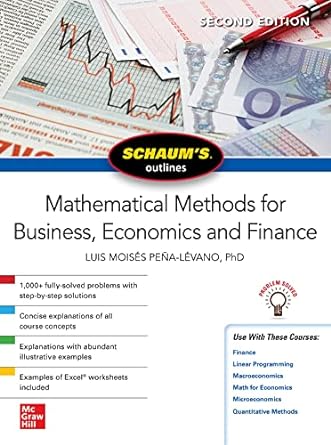Factor each of the following using integer coefficients: (a) x2 + 10x + 21 Here, using the
Question:
Factor each of the following using integer coefficients:
(a) x2 + 10x + 21 Here, using the notation from Rule 1 in Section 1.3, m = 1, n = 10, and p = 21. For simplicity we limit our search to positive integers such that:
(1) a · b = 1 [I, 1] Henceforth, when a = b = 1, this step will be omitted and only one order will be considered.
(2) c · d = 21 [1, 21; 3, 7; 7, 3; 21, 1]
(3) ad + be = 10. With a = 1 =
b, (c +
d) must equal 10. Since only 3 + 7 and 7 + 3 = 10,![]()
Whenever a · b = 1, the order of factors is unimportant and only one ordering of a given pair will be mentioned.
Fantastic news! We've Found the answer you've been seeking!
Step by Step Answer:
Related Book For 

Schaum S Outline Of Mathematical Methods For Business Economics And Finance
ISBN: 978-1264266876
2nd Edition
Authors: Luis Moises Pena Levano
Question Posted:






